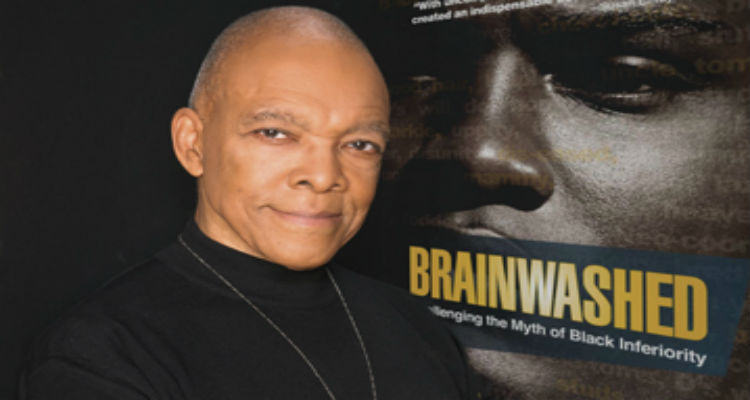Marketing Communications Pioneer, Tom Burrell, born March 18, 1939, is a recognized leader and change-agent credited with revolutionizing the use of positive and realistic images of African Americans in television advertising. His award-winning work acknowledged the purchasing power of the African American community and literally changed the face of American advertising.
In 2010, Burrell authored the now classic book Brainwashed: Challenging the Myth of Black Inferiority.
“As the former founder and CEO of one of the top ad agencies in the country, I bring more than 45 years of advertising and marketing expertise with black consumers and social behaviors to the table. Brainwashed, to my knowledge, is the very first book that talks about the selling of race-based inferiority from both a historical and contemporary marketing perspective, and its devastating impact on both blacks and whites. I wrote this book to serve as a catalyst for deprogramming society from the myth that blacks are innately inferior to whites.” – Tom Burrell
Here are Ten Quotes from the book, Brainwashed:
1. “Our insistence that we have broken free from the negative propaganda is wishful thinking. It takes much more than big afros, clenched fists, and danceable slogans to fight centuries of unremitting exposure to twisted images and dehumanizing messages.”
2. “Somewhere along the line producers of hip-hop came to realize that the real money, the real avenues to fortune and fame, came via music about sex, drugs, and violence; how they “made it” on the carcasses of those who trespassed on their turf—either in the streets or in the industry. Along the line, powerful forces realized there was gold in black music divisions.”
3. “Mental health experts are in general agreement that persistent exposure to humiliation, brutality, and abuse, physical or emotional, can program people to humiliate, brutalize, and abuse others. Apart from the indigenous people of this country, no other ethnic group has been subjected to the centuries of abuse that Africans and their descendants have experienced.”
4. “Though the hypersexual images of black men and women were created centuries ago, studies have shown that, once images are established, they change very slowly if at all. They become part of our collective culture, the DNA of newer, even wilder images.”
5. “In early America literature, posters, and later, film, Black males were caricatured as slow, slope-shouldered, slouchy, and sleepy. It’s interesting to note that these images reveal an emphasis on looseness: loose head hanging from a horizontal neck; loose lips hanging from a downcast face; loose empty hands hanging from long, limp, simian-like arms; loose, tattered clothing, and loose shoes (if any); and loose, lazy, slurry speech.”
6. “…Black children use television to learn “new facts and information about life” and to learn how people “behave, talk, dress and look.” The scary reality is that Black children perceive media-fed behaviours as true reflections of life.”
7. “The investigative team cited research based on a study of advertisements published in two popular Black magazines with majority Black female readerships. They discovered that nearly 50 percent of the ads in the publications were devoted to alcoholic beverages. Contrast those figure with the meager two percent of alcoholic ads found in whyte-oriented women’s journals.”
8. “Our history of feeling inferior fuels the propensity for African Americans to buy name brands we perceive to be the best knowing that we have been considered “less than” …spawned a reflexive need to demonstrate that we are equally (if not more) worthy.”
9. “In many ways, African Americans have romanticized and institutionalized low expectations. Often our goal is not to be “the best” but to be “the best black”—as in “best black business” or “best black doctor” or “best black college.” Inherent in these labels is a subliminal acceptance that our “best” is somehow naturally inferior or somehow different from the white ‘best.’”
10. “New race consciousness moves us beyond labeling. It introduces a new game board. It’s no longer about changing white folk’s minds – it’s about changing our collective mindset. It’s about people dedicated to destroying the myth of black inferiority with a powerful new media campaign.”
Sources:
Brainwashed: Challenging the Myth of Black Inferiority by Tom Burrell
http://arresteddevelopmentmusic.com/qa-with-tom-burrell-br…/
http://www.hayhouse.com/authorbio/tom-burrell



